Defense & Security Archive
Free Newsletter
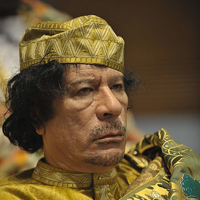
The rapidly spreading chaos in Libya should give the American people pause, and may end up giving the U.S. military another item to add to its endless to-do list. Setting the stage for what might be called the battle for Tripoli, anti-government forces and rebel military units are moving from the country’s apparently “liberated” east to face off against Moammar Gadhafi’s Praetorian Guard of tribal and regime loyalists. The New York Times described “clusters of heavily armed men in mismatched uniforms clutching machine guns,” “dozens of checkpoints operated by . . . plainclothes militiamen,” and “machine-gun toting foreign mercenaries” stalking […]
When she was first named foreign minister last November, I, like most observers, noted Michèle Alliot-Marie’s reputation as a professional, the kind of minister who could be counted on to take care of business and not make headlines. She arguably delivered on the first count, but was done in by her abject failure to deliver on the second, with the never-ending revelations from her ill-fated Christmas holiday in Tunisia fatally undermining her legitimacy as the face of France’s foreign policy. Nevertheless, it’s worth repeating that Alliot-Marie’s failings were a function of her professionalism — that is, they reflect the standard […]
The African Union recently announced its intention to develop an African naval force, which would fight illegal fishing, piracy and environmental problems in Africa’s collective exclusive economic zone (EEZ). In an e-mail interview, Johan Potgieter, a retired captain in the South African navy and a senior researcher at the Institute for Security Studies in South African, discussed the AU’s proposed naval force. WPR: What need does this proposal respond to? Johan Potgieter: Thirty-nine of the 54 countries in Africa are either coastal states or islands, with another five situated on the vast Great Lakes of central Africa. As a consequence, […]

Will the collapse of Moammar Gadhafi’s regime be the salvation of Russia, Saudi Arabia and Venezuela? Even without a forcible overthrow of the “Brother Leader” and the uncertainty of a subsequent interregnum, a protracted Libyan civil war that damages the country’s energy infrastructure could drive energy prices back to 2008 levels. Joshua Schenyer, surveying the landscape, concluded grimly, “Regardless of what comes next in Libya’s lethal political standoff, the OPEC country’s oil sector is nearly certain to suffer, bringing long-lasting supply disruptions or even permanent damage. None of several potential outcomes is benign for Libya’s oil industry — the lifeblood […]
If the debate about how the U.S. and the international community should respond to the carnage in Libya highlights one thing, it is that we still have not arrived at either a domestic or global consensus about when and why to intervene militarily in the affairs of a sovereign state. I include Iraq in the title of this post for three reasons. First, the pre-emptive nature of the Iraq invasion in many ways served to sidetrack the debate over humanitarian interventions. Second, the outcome of the Iraq War served to chasten the broad middle of the policy debate, if not […]

As more sickening details emerge of what actually happened to CBS reporter Lara Logan in Tahrir Square on Feb. 13, the partisan rhetoric shows no signs of abating. Some claim that it was “pro-Mubarak” thugs who sexually assaulted and almost killed the 39-year-old mother of two, while others point the finger at “pro-liberation” hooligans. Still others have used the incident to demonize Muslims in general. Such distinctions, however, have nothing to do with why Logan was attacked and, in fact, obscure the real issue. Like many millions of women, girls and young boys around the world, Logan was not a […]
One of the major points of speculation about the impact of the Egyptian uprising is over how a democratic government in Cairo will affect Egypt’s foreign policy, in particular regarding Israel. A just-released Ifop poll of French opinion on the Afghanistan War (via Jean-Dominique Merchet) highlights a point I’ve been meaning to make: Democracies are not immune to unpopular foreign policy. According to the Ipof poll, 72 percent of French people oppose the country’s involvement in the Afghanistan War. That’s slightly higher than the two-thirds who opposed the war at the time that French President Nicolas Sarkozy decided to deploy […]
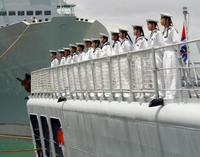
BEIJING — Following a period of considerable success and strategic evolution, China’s foreign policy has been marked by a less coherent and less constructive approach to international relations over the past year. Nowhere has this shift been more pronounced than on the Asian littoral, a key arena in the country’s international rise, where China’s opaque naval expansion and increasingly abrasive behavior have begun to undermine previous strategic gains. China’s naval modernization is part of an ongoing force-wide attempt to enhance national military capabilities, particularly in nonconventional warfare and peacetime operations. The People’s Liberation Army Navy (PLAN) also has a stated […]
This report by the Pentagon Channel, the U.S. Defense Department’s TV news service, on the killing of four Americans by pirates on February 22, includes an interview with U.S. Navy Vice Admiral Mark Fox, commander of U.S. Navy Forces Central Command, who describes the events after U.S. forces boarded the pirated vessel Quest off the coast of East Africa.

Last weekend I attended a conference in San Antonio on the relevance of Thucydides’ “History of the Peloponnesian War” to the practice of contemporary American foreign policy. Sponsored by the Liberty Fund, the conference’s motivating concept and focus was the relationship between democracy and empire in Thucydides. The conference attendees included scholars of several stripes, including War College faculty, former policymakers from the Bush administration and prominent think tank fellows. This was no dry academic conference focused on textual minutiae. Rather, it was intended to give policymakers — and those who educate policymakers — space for thinking about what Thucydides […]

Bahrain may be the 163rd most populous country on Earth, but for the past week it has taken center stage, along with Libya, in the unfolding drama shaking the Arab world. While the island kingdom carries little of the weight and influence of a political and cultural power like Egypt, the events in Bahrain have the potential to reshape the geopolitics of the Gulf, with knock-on effects for global oil markets and the U.S.-Saudi relationship. Following the uprisings in Tunisia and Egypt, disgruntled Bahrainis took to the streets to protest corruption, institutionalized racism and the lack of political rights and […]
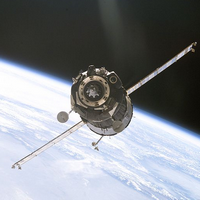
Several additional national security strategies have been issued in recent weeks, including the publication earlier this month of both an updated National Military Strategy and the first-ever National Security Space Strategy. Though these texts shed additional light on the priorities and perspectives of the Obama administration’s national security team at mid-term, they serve other purposes than just articulating strategy. The National Military Strategy (.pdf) starts by describing the security environment in which the Pentagon operates, the U.S. military’s core objectives and the Defense Department’s strategies for pursuing them. It then assesses the adequacy of U.S. military capabilities to achieve these […]
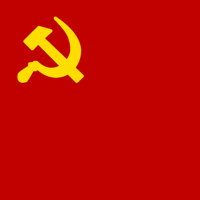
The 2008 and 2010 Latinobarometro Polls, taken in 18 countries of Latin America, underline the fact that, even though the GDP of most Latin American countries has been improving since 2001, there are deep flaws in democratic political systems throughout the region. The relative popular dissatisfaction stems from deep-rooted socioeconomic inequalities as well as distrust and lack of confidence in police forces, legislatures and political parties. There is also a growing popular consciousness of unfulfilled rights, leading to rising demands for their enjoyment. Peruvians are especially disgruntled. Peru’s economy has grown faster than any of the other bigger countries in […]

In July 1967, at the height of Mao Zedong’s “Great Proletarian Cultural Revolution,” an editorial appeared in the Chinese Communist Party newspaper the People’s Daily heralding “a peel of spring thunder” sweeping across India. An uprising of tea-plantation workers led by Maoist militants in Naxalbari, a poor and remote district near India’s Darjeeling region, had come to Beijing’s attention. Inspired by the Chinese revolution, the militants imagined that Naxalbari was to be the beginning of a popular revolt that would end with the red flag flying over New Delhi. Such dreams were premature. Within months, the government had brutally suppressed […]
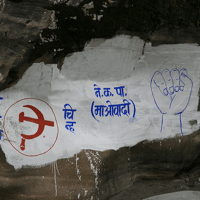
Left-wing radicalism in South Asia is stronger than at any time since the Cold War, with both India and Nepal challenged by Maoist uprisings. Because it impacts one of the world’s emerging powers, the situation in India is perhaps of greater global significance. But the Nepal case is just as instructive, if not more so. For Nepal’s largely impoverished population of 25 million, which lives in a territory the size of Florida, a bloody decade of people’s war has since 2006 given way to “peace.” Yet to call the situation in Nepal peace is appropriate only if one believes that […]
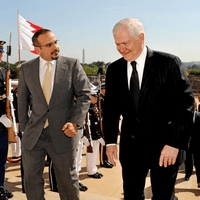
As waves of unrest continue to roil the Middle East, there is a great deal of uncertainty as to what the future might bring. Will a successor to former President Hosni Mubarak in Egypt maintain the peace treaty with Israel, cooperate in isolating Hamas in the Gaza strip and maintain the intelligence relationship with the United States? And should a revolutionary regime overthrow the Khalifas in Bahrain, will it reject the U.S. Navy’s Fifth Fleet from the island? Most prognostications on the region’s future assume that revolutions that depose status quo governments automatically reverse the policies of their predecessors. One […]
